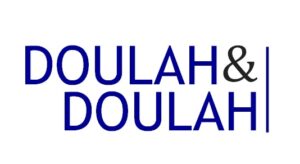Bangladesh is an emerging economy in Asia that could maintain its steady GDP growth and a stable BB- credit rating as per S&P and Fitch in recent years. Its large labour force and big consumer market have made it an attractive investment destination for manufacturing and services industries, complemented by its infrastructure development potentials. Japanese investors have been one of the forefront runners in investing in Bangladesh.
FOREIGN INVESTMENT
Except for areas such as arms or defence equipment, forest plantation, nuclear energy and security printing, no sectors are prohibited for private investment. Certain sectors are controlled, such as banking, energy, mining, telecoms, etc., subject to licences and a number of those have limits on a maximum beneficial shareholding. Some industries specifically prohibit 100% foreign investment, such as freight forwarding, e-commerce, logistics, etc.
BUSINESS VEHICLES
Branches of foreign companies can be used for all non-industrial purposes, but prevalent in the services sectors, e.g. sales, marketing, customer services, construction, etc. Unless specifically allowed otherwise, branches are required to be run on remittances from parents with an initial remittance of USD50,000 and need approval from the Bangladesh Investment Development Authority, followed by registration with the Office of the Registrar of Joint Stock Companies and Firms (RJSCF). The whole process takes around one to two months. A country representative is mandatory. Quarterly accounts are required to be filed with various authorities, with the annual report to be filed with the RJSCF.

Partner
Doulah & Doulah in Dhaka
Tel: +880 171 150 6015
Email: ndoulah@doulah.net
Companies are the most common form of business vehicle for manufacturing, physical infrastructure and businesses with a local revenue stream. It takes a minimum of two persons to incorporate a private limited company and seven people for a public limited company, requiring a minimum of two and three directors, respectively. For incorporation, after the initial name clearance, the foreign shareholders must remit their capital contribution in an attorney or deferred capital account of the company and collect the encashment certificate from the bank to be lodged with the RJSCF, along with executed memoranda and articles, address details and directors’ consent or list. The whole process may take up to four weeks.
The board of directors needs to hold meetings at least quarterly, and members must hold annual general meetings every year, followed by the lodgment of annual returns with the RJSCF and audited accounts. There can be multiple classes of shares, and convertible or redeemable preferred shares are allowed.
GREENFIELD STRATEGIES
Foreign investments can only be made in cash equity or capital machinery. For fresh investments, a shareholder agreement is of particular importance, which stipulates shareholders’ obligations, rights such as the right of first refusal, tag or drag alone rights, governance standards and effective dispute resolution methods.
BROWNFIELD STRATEGIES

Partner
Doulah & Doulah in Dhaka
Tel: +880 1711 027 377
Email: akhatoon@doulah.net
M&A of shares. Acquisition of shares by way of transfer and, in some cases, tagged with the fresh issue is frequently used to acquire existing businesses in Bangladesh. Transfers involving non-residents are required to be at fair value determined as per central bank guidelines. Prior approval is needed from the central bank for non-resident to resident transfers for repatriation of the purchase price. However, prior approval has been exempted for sale prices below BDT100 million (USD1.16 million), and fair price valuation has been exempted if a net asset value approach is adopted, while 1.5% stamp duty is payable over the consideration of a share transfer.
Asset-based acquisition. An alternative assets-based acquisition can be adopted where there is high uncertainty as to the liabilities of the target. Assets can be purchased on a piecemeal basis or as a going concern. Asset acquisitions are cost-inefficient as 1-3% stamp duty for conveyance and 1-1.5% stamp duty for registration are payable.
No voluntary combination or merger control approval requirement from the competition authority, and no foreign investment screening formalities have been imposed yet.
PUBLIC-PRIVATE PARTNERSHIPS
Infrastructure PPPs. Concession contracts are tendered by the government under the PPP modality for a number of controlled sectors, including physical infrastructure, large mills or plants, economic zones, etc. Except for power and energy, PPP concessions are awarded under the PPP Act, 2015, through public tender. As per the feasibility analysis, the payment method may be based on tolls or annuity with viability gap financing in appropriate cases.
Unsolicited proposals are also accepted and follow the same screening process, such as feasibility analysis and competitiveness validation by the tender method adopting a bonus or Swiss challenge system. In addition, the process for direct procurement, limited and open tendering methods are subject to framework agreements with different governments under the G2G Partnership Policy 2017.
Power and energy. Most of the power and energy sector project concessions such as independent power plants (IPPs), LNG terminals and so on are generally awarded as per the Public Procurement Act under special policies such as the Private Sector Power Generation Policy. In addition, the government can also exercise direct procurement or limited tendering or even accept unsolicited proposals under the Power and Energy Fast Supply Enhancement (Special Provision) Act, especially for this sector. As such, this is a very lucrative sector for investment, especially in renewables.
Economic zone. For a private development of an economic zone, a licence is required from the Bangladesh Economic Zones Authority under the Bangladesh Private Economic Zones Policy, 2015. However, any development proposed to be carried out on a PPP basis is required to be selected under the PPP framework as stated above in line with the Bangladesh Economic Zones (Appointment of Developers) Rules, 2015, which incorporates additional requirements such as the qualification of developers.
INVESTMENT INCENTIVES
Tax holidays are allowed for industrial undertakings in thrust sectors and physical infrastructure established from 1 July 2019 to 30 June 2024 and other sectors as follows:
- Thrust sectors in developed areas (five years): 90%, 80%, 60%, 40% and 20%. Underdeveloped areas (10 years): 90%, 90%, 80%, 70%, 60%, 50%, 40%, 30%, 20% and 10%;
- Physical infrastructure (10 years): same as underdeveloped areas as stated above;
- Export processing zone industries in developed areas (five years): 100%, 100%, 50%, 50% and 25%. Underdeveloped areas (seven years): 100%, 100%, 100%, 50%, 50%, 50% and 25%;
- Economic zone or hi-tech park developers (12 years): 100% for 10 years and then 70% and 30%;
- Economic zone or hi-tech park industries (10 years): 100%, 100%, 100%, 80%, 70%, 60%, 50% , 40%, 30% and 30%.
IPPs commencing production before 2023 shall enjoy 15 years of tax exemption and 100% exemption for the first five years, 50% in the next three years and 25% exemption during the next two years.
The government has declared a tax exemption of 10 years for PPP projects in several sectors such as toll roads, ports etc. All receivables by construction contractors, suppliers, legal service providers and consultancy or supervisory firms attributable to PPP projects have been exempted from paying any value-added tax (VAT).
ACCESS TO FINANCE
Other than for small and mid-sized projects, there is not enough liquidity in the local market to finance large-scale projects, which depend on multilateral development and offshore commercial banks. However, for large projects, local financial institutions sometimes provide bridging loans up to financial close. Below are the common sources of financing in Bangladesh.
- Shareholders’ loan: Allowed as working capital to industrial and services companies for a maximum of three years with up to 3% interest.
- Preferential shares: Quasi debt-equity securities issued to existing shareholders, new shareholders and private equity firms. In some cases, a syndicate of local banks and financial institutions also subscribe to these securities.
- Bonds or debentures: Debt securities offered either by private placement or public listing generally subscribed by local or foreign institutional investors, local banks and financial institutions.
- Local term borrowing: Allowed up to 50:50 debt-to-equity ratio in general, but for foreign-owned companies, such loans can be availed only after three years of operation.
- Foreign term borrowing: Allowed on a recourse or limited recourse basis for up to 70:30 debt-to-equity ratio for industrial and physical infrastructure projects only. Sometimes, these are backed by export credit agencies.
- Government assistance: Available in viability gap financing or linked components in some PPP projects.
TAXATION
Generally, income tax is payable over profit at 25% for listed companies or 32.5% otherwise. The general VAT rate is 15%. Taxes payable over dividends to foreign corporate shareholders is 20%. Contract payments are subject to withholding tax and VAT for:
Income tax:
- Payment does not exceed BDT5 million: 3%
- Payment between BDT5 million and 20 million: 5%
- Payment exceeding BDT20 million: 7%
VAT:
- Engineering: 15%
- Procurement: 7.5%
- Construction: 7.5%
Bangladesh and Japan entered into a Double Taxation Avoidance Agreement on 28 February 1991, which allows exemptions or preferential tax rates for instances like interest, capital gains, dividends, royalties, etc.

Doulah & Doulah
Doulah House, Plot – 153/2, Road -2/2
Mirpur-12A, 1221, Dhaka, Bangladesh
Telephone: +880 171 150 6015, Fax: +880 2 801 6442
Email: info@doulah.net
www.doulah.net






























